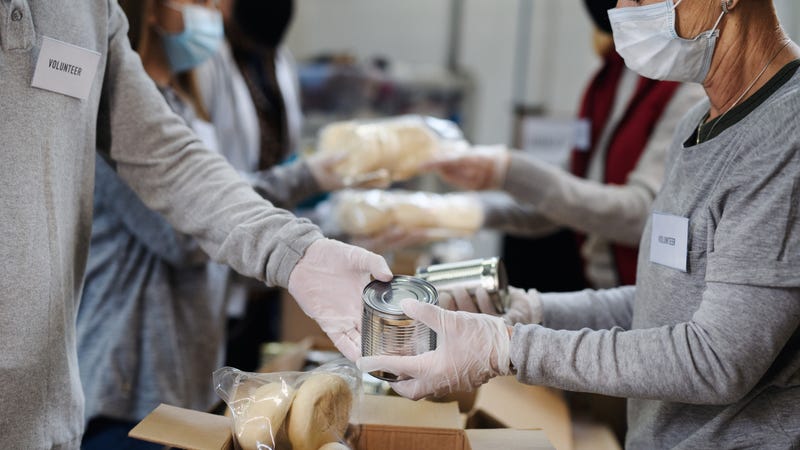
PHILADELPHIA (KYW Newsradio) — Tens of millions of Americans who receive SNAP benefits will no longer be getting the extra payments they have been relying on during the pandemic. And food pantries in the Philadelphia region have been bracing for a sharp rise in demand.
Manna on Main Street in Lansdale, Montgomery County has experienced a large increase in the number of people who are looking for relief. The spike that started because of the pandemic continued because of inflation.
“Last July we went from 5,000 meals served every month to 7,000 and we’ve stayed at that elevated level,” said Sheldon Good, the organization’s Director of Development and Strategic Direction. “And now we’re facing an even greater increase.”
That’s because of the end of the SNAP emergency allotments. These were additional monthly benefits given to SNAP recipients that were part of the federal government’s pandemic relief efforts. The funding for the supplemental benefit was not included in the appropriations bill that passed Congress and was signed by President Biden in December. Eighteen states stopped providing the additional payment early while 32 states, including Pennsylvania, New Jersey, and Delaware, continued to provide the additional benefit through the end of February.
SNAP recipients in Pennsylvania will receive, on average, $181 less a month according to the commonwealth’s Department of Human Services.
“We kind of look at this like a sort of vicious economic riptide,” explained George Matysik, the executive director of the Share Food Program which provides food for food pantries, schools, and thousands of seniors in the Philadelphia area.
“Literally resources are being ripped from the people who need it the most. All of that ends up falling back on organizations like the Share Food Program that we have to continue to grow the resources that we have in order to serve a much greater demand than we’ve seen in recent years.”
Officials in Pennsylvania are urging people to make donations to hunger relief organizations. Good and Matysik, in their separate interviews, mentioned the need for monetary and food donations.
“Pasta sauce, granola bars. Shelf stable milk. We provide not just food but other household items to people in our market - toilet paper, paper towels. Bottled water, dried fruit. You name it,” Good said.
The Pennsylvania Department of Human Services is also urging SNAP recipients to contact the agency and inform them of any life changes, including an increase in household size, to maximize the benefits they are eligible for. And in New Jersey, Governor Phil Murphy signed a bill in February that increased the minimum SNAP payment from $50 to $95 a month for eligible households.
